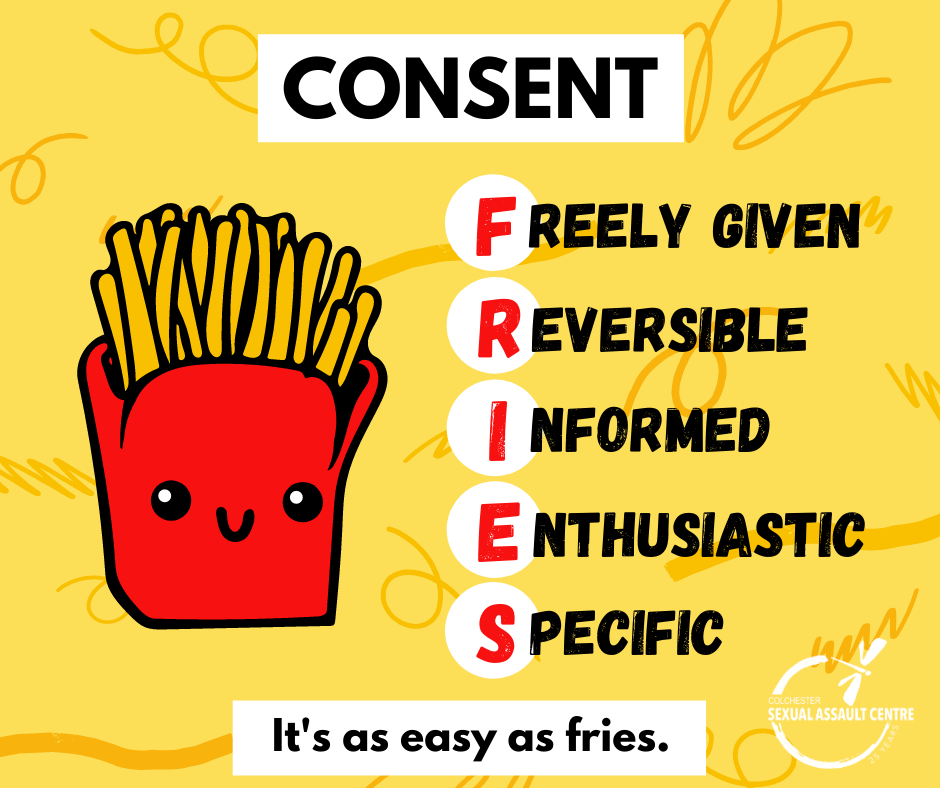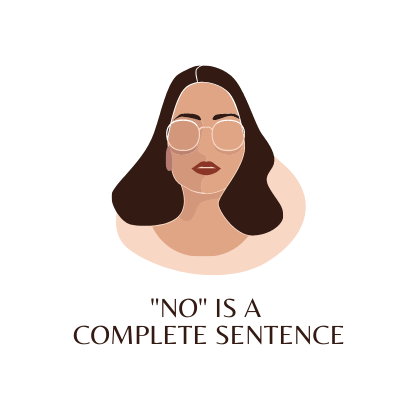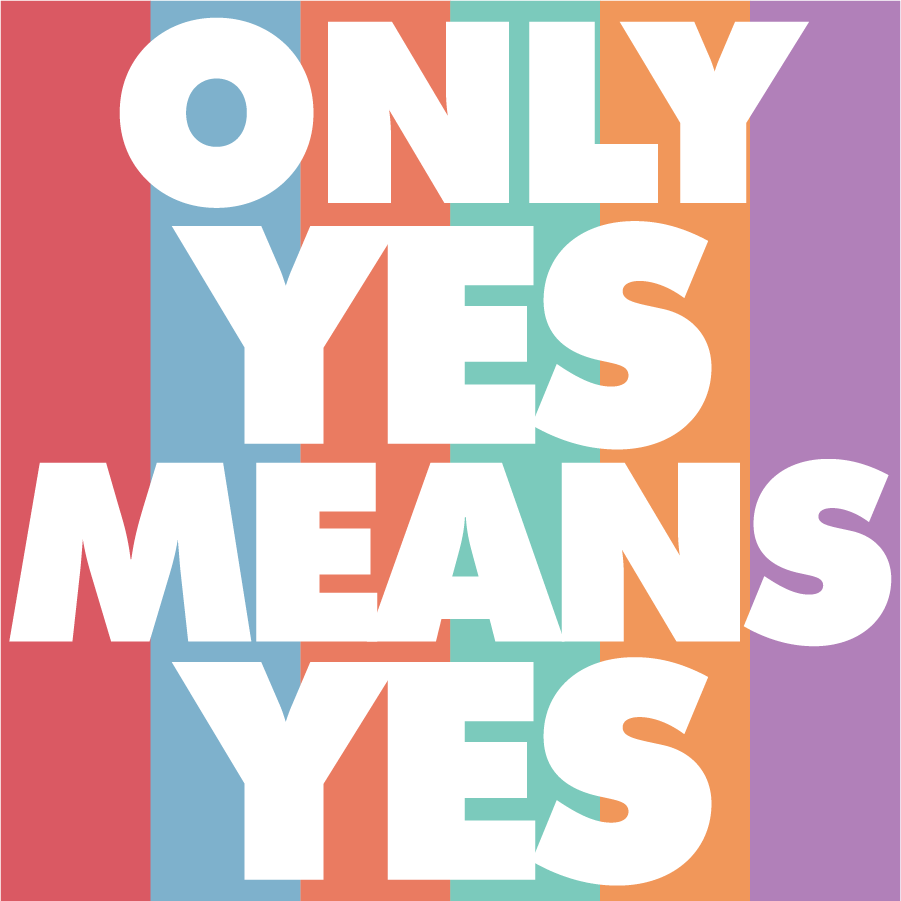What is consent?
Consent — when someone freely agrees to engage in a certain act — is a non-negotiable part of sexual activity.

If consent isn’t present, it’s sexual violence.
At its most basic level, consent is about caring if another person wants to engage in sexual activity and respecting their decisions regarding their boundaries, needs, and wants. Everyone has the responsibility to get consent before engaging in any sexual activity with another person.
Consent is:
- clear — everyone involved must be clear on what they are consenting to
- freely given — consent is not present if they were pressured into engaging in that sexual activity
- current — consenting to sexual activity on one occasion doesn’t mean that person is consenting to sexual activity in the future; consent must be present each and every time someone engages in sexual activity
- ongoing — consent must be given for each and every sexual act; just because consent is present for one sexual act doesn’t mean it is present for another; people’s desires and feelings of comfort and safety can shift throughout a sexual encounter
- changeable — all parties must be able to stop the sexual activity at any point; this means checking in with the person(s) throughout the sexual activity, getting a clear answer and then respecting that answer.

People say no in different ways. You can show by your words or your actions that you do not consent. Nonverbal actions, such as struggling, trying to leave, shutting down, or “freezing” means no. Saying, “Um, I guess so…” or “Actually, I changed my mind…” means no. Saying “no” or nothing at all means no.
Anything but a clear, freely given, ongoing YES, means NO.
Age of consent
The legal age of consent in Canada is 16 years old. However, there are other laws that also apply to age of consent. RCMP Canada states:
- 16 and 17-year-olds cannot legally consent to sexual activity with someone with whom they have a “relationship of trust, authority, or dependency” (e.g. a coach, doctor, or teacher, family member) or where there is an “activity of exploitation” (e.g. pornography, sex work).
- 14 or 15-year-olds can legally consent to sexual activity with someone who is less than 5 years older but it cannot be with someone with whom they have a “relationship of trust, authority, or dependency” or where there is “exploitation.”
- 12 or 13-year-olds can legally consent to sexual activity with someone who is less than 2 years older but it cannot be with someone with whom they have a “relationship of trust, authority, or dependency” or where there is “exploitation.”
- Under 12-year-olds cannot legally consent to sexual activity under any circumstances.

Statistics Canada (2014) reports that 1 out of 4 girls and 1 out of 6 boys will experience sexual assault before age 16. No one can legally consent to sexual activity with their parent, child, sibling, grandparent, or grandchild. This is incest.
Alcohol and consent
Alcohol is the number one date rape drug used in sexual violence. Alcohol and other drugs impair a person’s judgement and ability to communicate and make decisions.
If a person is unconscious or their judgement is impaired by alcohol or drugs, legally they are unable to give consent to sexual activity.
Using alcohol or drugs does not excuse sexual assault, nor does it make the person assaulted in any way responsible for the assault. The inability to consent due to intoxication means no.

External Resources:
Break the Silence Nova Scotia, “Consent” — More information about consent, including a video explanation.
Love is Respect, “What Consent Does—and Does Not—Look Like” — More information about consent, including how to ask for consent.
The Consent Crew — A blog that engages, educates, and informs about consent culture in fun and playful ways.
Coercion, Consent, and Sexual Violence [YouTube video] — A TEDx Talk by Dr. Felicia Kimbrough to help open a dialogue among families, parents, and young adults on the idea of sexual consent, and how to obtain it.

